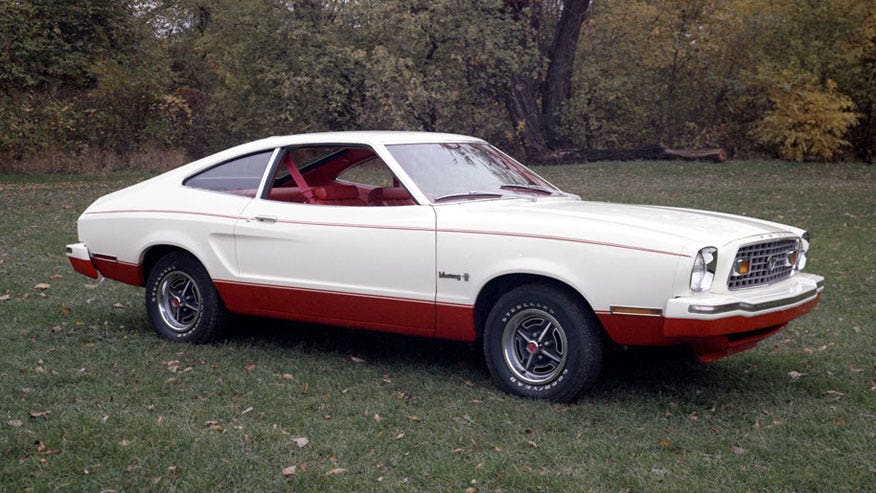HAGERTY.COM
Published By Tara Hurlin

Ahh, the 1970s, or what some would call the Automotive Dark Age: Gas prices were rising, emissions laws and fuel economy regulations were tightening, and the economy was stagnant. Enter the rise of the disco culture and underpowered, boxy vehicles and wave goodbye to the production of luxurious land yachts and burly muscle cars.
Every automaker was affected by the changes of the 70s. For example, General Motors had actually just begun mass production of its vaunted 2-rotor GMRE engine in summer 1973, but the fuel crisis led GM to destroy the engines. The Chrysler Corporation abandoned its big-block V-8 production lines, even for trucks, after the second fuel crisis in 1979, and companies such as Lancia and Fiat ceased sales in the U.S.
As automakers tried to build smaller, more fuel-efficient vehicles to satisfy the law, the market became plagued with cars such as the sickly Mercury Bobcat and the Chevrolet Chevette, and with the production of these unsightly cars, some of the greats were lost. Generally speaking, horsepower took the hardest hit, especially vehicles that held GM’s performance big-block engines and Mopar’s Hemi, which meant that American muscle would never be the same again.
Here are some of the greatest cars killed by the oil crisis:
Ford Mustang: This iconic car without a doubt took one of the biggest hits with the production of the Mustang II, as mentioned by much of our audience, but fortunately it was a temporary loss — brutal, but temporary. The overly-glorified Ford Pinto had nothing to offer accept Mustang badges, lots of stickers, fake hood scoops and useless spoilers, and some even claim its production threatened to degrade the Shelby name. But a year after its debut, the Mustang II was once again offered with a small-block V-8 engine, and Ford slowly worked out the kinks caused by the emissions regulations as technology advanced over the years.
Pontiac GTO: Due to punitive surcharges distributed by auto insurance companies, the new styling of the GTO did little to help declining sales. To top it off, the 1973 GTO lost even more horsepower, and the new Grand Am stepped up for the competition. For 1974, Pontiac needed an outlet to get into the compact muscle car market and moved the GTO option to the Ventura — sales still were not enough to justify continuing the model.
AMC Ambassador: Nash, Rambler and then AMC used the Ambassador name until its demise in 1974. As many of you asserted, it was a long-lived name that should have never been forced to disappear. AMC also abandoned the mid-size market after 1978 with the discontinuation of the Matador.
Chevrolet Chevelle: The 1973 Chevrolet Chevelle instituted some controversial styling changes: the iconic hardtop option was taken away thanks to new Federal rollover standards, and like the majority of the heavy muscle cars, it lost the horsepower that allowed it to roll its robust body effortlessly down the road. Unfortunately, emissions took the “muscle” out of “muscle car,” and the Chevrolet SS Chevelle suffered a blow during the 1970s crisis, perishing in 1977.
VW Beetle: Oddly enough, despite its small size and record-shattering production numbers, the Volkswagen Beetle is another casualty of the ‘70s, but its production was going downhill before then due to some hefty competition from the re-defined rear-wheel-drive Japanese compact cars and the smaller American cars that were beginning to surface with the oil crisis. The VW no longer met crash-rating standards and more room was needed for emissions equipment, which caused some re-design expense for the already struggling company during the financial crisis. After a few more years of light upgrades, the last classic Beetle was produced for the U.S. market in 1979.
Every car in production prior to the early 1970s took a hit and had to make critical adjustments in order to survive the ever-changing automotive market, so the answer to the question really does depend on your specific taste and what pre-70s cars you love the most.

No comments:
Post a Comment